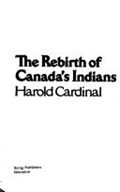Narrow Results By
Decolonizing sport
https://archives.whyte.org/en/permalink/catalogue26241
- Medium
- Library - Book (including soft-cover and pamphlets)
- Published Date
- 2023
- Publisher
- Halifax ; Winnipeg : Fernwood Publishing
- Call Number
- 07.2 F77d
- Responsibility
- Edited by Janice Forsyth, Christine O'Bonsawin, Russell Field, and Murray G. Phillips
- Publisher
- Halifax ; Winnipeg : Fernwood Publishing
- Published Date
- 2023
- Physical Description
- xi, 276 pages : illustrations ; 23 cm
- Subjects
- Canada
- History-Canada
- Education
- Sport
- Indigenous
- Indigenous Culture
- Indigenous People
- Indigenous Traditions
- Indigenous Customs
- Abstract
- The path to decolonization is difficult and complex, and can even be contradictory at times, as when an Indigenous community enlists the same corporate sponsor that will destroy its natural environment to provide sport programming for its youth. There is no easy way forward. The Black Lives Matter movement, and their massive followers on social media, propelled forward discussions about the inequities that Covid-19 highlighted with unprecedented momentum. Indigenous people in Canada voiced their concerns in solidarity, calling attention to disparities they faced in everything from impoverished Indigenous health care initiatives to the overrepresentation of Indigenous people in the Canadian justice system, demanding to be heard alongside systemic change. Structural adjustments were afoot, including changes in the professional sport leagues. In both the United States and Canada, people witnessed the toppling of racist sports team names and logos in the spring and summer, not the least of which included the American Washington NFL team (Redskins) and the Canadian Edmonton CFL team (Eskimos). Clearly Indigenous people and their allies saw sport as a part of this desire for social change. This multi-authored collection contributes to that desire by bringing the work of Indigenous and non-Indigenous allied scholars together to explore the history of sport, physical activity, and embodied physical culture in the Indigenous context. Including chapters that address Indigenous topics beyond the political boundaries of Canada, including the US, Australia, New Zealand/Aotearoa, and Kenya, this collection considers questions such as: How can the history of sport (a colonizing practice with European origins) exist in dialogue with Indigenous voices to open up possibilities for reconsidering the history of modern sport? How can Indigenous and anti-oppressive research methodologies/methods inform the study of sport history? What are the ethics and responsibilities associated with conducting an Indigenous sport or recreation history? How can sport history as a discipline be open to the study of traditional land-based recreation? How can the meanings of "sport" be made more inclusive to include a variety of recreational practices? How can sport historians learn from histories of colonization and how can they contribute to a more reciprocal approach to knowledge formation through Indigenous community engagement? How can the discipline of sport history meaningfully support movements of Indigenous resurgence, regeneration, and decolonization? -- Provided by publisher.
- Contents
- Ways of knowing: sport, colonialism, and decolonization / Janice Forsyth, Christine O'Bonsawin, Russell Field -- Beyond competition: an Indigenous perspective on organized sport / Brian Rice -- More than a mascot: how the mascot debate erases Indigenous people in sport / Natalie Welch -- Witnessing painful pasts: understanding images of sports at Canadian Indian residential schools / Taylor McKee and Janice Forsyth -- The absence of Indigenous moving bodies: whiteness and decolonizing sport history / Malcolm MacLean -- # 87: using Wikipedia for sport reconciliation / Victoria Paraschak -- Olympism at face value: the legal feasibility of Indigenous-led Olympic Games / Christine O'Bonsawin -- Canoe racing to fishing guides: sport and settler colonialism in Mi'kma'ki / John Reid -- Transcending colonialism?: rodeos and racing in Lethbridge / Robert Kossuth -- "Men pride themselves on feats of endurance": masculinities and movement cultures in Kenyan running history / Michelle M. Sikes -- Stealing, drinking, and not cooperating: sport and everyday resistance in Aboriginal settlements in Australia / Gary Osmond -- Let's make baseball!: practices of unsettling on the recreational ball diamonds of Tkaronto/Toronto / Craig Fortier and Colin Hastings -- Subjugating and liberating at once: Indigenous sport history as a double-edge sword / Brendan Hokowhitu.
- ISBN
- 9781773636344
- Accession Number
- P2024.02
- Call Number
- 07.2 F77d
- Collection
- Archives Library
This material is presented as originally created; it may contain outdated cultural descriptions and
potentially offensive content.
Read more.
Educating the body : a history of physical education in Canada
https://archives.whyte.org/en/permalink/catalogue26240
- Medium
- Library - Book (including soft-cover and pamphlets)
- Published Date
- 2024
- Author
- Hall, M. Ann, Kidd, Bruce and Vertinsky, Patricia
- Publisher
- Toronto ; Buffalo ; London : University of Toronto Press
- Call Number
- 08.1 H14e
- Publisher
- Toronto ; Buffalo ; London : University of Toronto Press
- Published Date
- 2024
- Physical Description
- xvi, 305 pages : illustrations ; 26 cm
- Abstract
- The thesis of this work sets out a history of physical education in Canada with a focus on the major advocates, innovators, and institutions that helped shaped it. This work places the historical narrative within the social, economic, and political conditions that impacted institutions, advocates, and innovators as they influenced the formulation of state physical education schooling in Canada between the Ryerson era (1803-1882) and ending with the early decades of the 21st century. The title of the work, "Educating the Body" recognizes that "the body" has its own unique vocabulary and analysis, and as such, reflects the authors' belief that physical education curriculum should ideally enable the learner to direct their own discovery of body agency (and the joy of movement) in ways that are creative, self-expressive and true to their lived body experience. As the work demonstrates, however, waves of state-directed physical education curriculum each held their own agenda about how the "ideal" child and adolescent body should be trained within the context of hegemonic paradigms of dominance and control. The work is framed around three major developments that shape the analysis: a) the significant growth of critical, social scientific research about physical education and sport during the last 50 years (through the lens of social, material, feminist, post-structuralist and queer theory); b) the tensions underlying the evolution of kinesiology and the "displacement" (p. 13) of physical education as a school subject; and c) evidence from the Final Report of the Truth and Reconciliation Commission of Canada. -- Provided by publisher.
- Contents
- Ryerson and His Vision -- Towards a Pan-Canadian Curriculum -- The Margaret Eaton School: Forty Years of Women's Physical Education -- Fit for Living -- Setting a Heroic Agenda--Realizing the Possibilities -- Changing Times and New Initiatives -- Seeking Optimism in a Contested Field.
- ISBN
- 9781487508562
- Accession Number
- P2024.02
- Call Number
- 08.1 H14e
- Collection
- Archives Library
This material is presented as originally created; it may contain outdated cultural descriptions and
potentially offensive content.
Read more.
The rebirth of Canada's Indians
https://archives.whyte.org/en/permalink/catalogue25275
- Medium
- Library - Book (including soft-cover and pamphlets)
- Published Date
- 1977
- Author
- Cardinal, Harold
- Publisher
- Edmonton : Hurtig Publishers
- Call Number
- 07.2 C11t
1 website
- Author
- Cardinal, Harold
- Responsibility
- Harold Cardinal
- Publisher
- Edmonton : Hurtig Publishers
- Published Date
- 1977
- Physical Description
- 222 pages
- Abstract
- The story of the Indian peoples' fight for justice through the tunnels and mazes of bureaucracy. An affirmation of the Indian way of life, of the Indian religion, and a demand for acceptance of the Alberta proposal for a new Indian Act. Chapters cover the Indian Act, Indian organization, education, economic development and aboriginal rights. (from LAC entry)
- Contents
- A Canadian - what the hell it's all about
- Make love not war - the changing role of Indian organizations
- Organize or else - it's not enough to find a bad guy
- The politics of poverty - how to survive in the democratic system
- Economic development I - without all the crap and mythology
- Economic development II - some of teh nitty is pretty gritty
- Education I - with our heads in the clouds
- Education II - always the prime topic
- Education III - strangers in the classroom
- Education IV - the need for legislation and funding
- The Indian Act I - government by a bunch of bureaucrats, or Her Majesty pulled a fast one
- The Indian Act II - moose meat beats bologna
- The Indian Act III - time to get down to specifics
- The Indian Act IV - to serve the people, not the government
- The Indian Act V - the only good indian is a sleeping indian
- Aboriginal rights - from a philosophical, religious viewpoint
- The Treaties - the Queen's forked tongue
- The claims - our children won't wait
- Indian organization I - they breathe the same air; they drink the same water
- Indian organizations II - we forgot to scalp the general
- Indian organizations III - the war continues - Chretien rises from the dead
- Integration and alienation - education and our childres
- Earmarked for Indian education - raindrops kept falling on their heads
- The education ferment - Cold Lake stands firm
- A hell of a mess - no problem is insoluable
- Wood, grass, stone - despair and rebirth
- ISBN
- 0888301251
- Accession Number
- P2020.07
- Call Number
- 07.2 C11t
- Collection
- Archives Library
- URL Notes
- Author information
Websites
This material is presented as originally created; it may contain outdated cultural descriptions and
potentially offensive content.
Read more.
School of racism : a Canadian history, 1830-1915
https://archives.whyte.org/en/permalink/catalogue26242
- Medium
- Library - Book (including soft-cover and pamphlets)
- Published Date
- 2023
- Author
- Larochelle, Catherine
- Publisher
- Winnipeg, Manitoba, Canada : University of Manitoba Press
- Edition
- First English-language edition
- Call Number
- 08.1 L32s
- Author
- Larochelle, Catherine
- Responsibility
- Translated by S.E. Stewart
- Edition
- First English-language edition
- Publisher
- Winnipeg, Manitoba, Canada : University of Manitoba Press
- Published Date
- 2023
- Physical Description
- viii, 464 pages : illustrations ; 24 cm
- Abstract
- Exposing the history of racism in Canada's classrooms Winner of the prestigious Clio-Quebec, Lionel-Groulx, and Canadian History of Education Association awards In School of Racism, Catherine Larochelle demonstrates how Quebec's school system has, from its inception and for decades, taught and endorsed colonial domination and racism. This English translation of the award-winning book extends its crucial lesson to readers across the country, bridging English- and French-Canadian histories to deliver a better understanding of Canada's past and present identity. Using postcolonial, antiracist, and feminist theories and methodologies, Larochelle examines late-nineteenth and early-twentieth-century classroom materials used in Quebec's public and private schools. Many of these textbooks, and others like them, made their way into curricula across Canada. Larochelle's innovative analysis illuminates how textual and visual representations found in these archives constructed Indigenous, Black, Arab, and Asian peoples as "the Other" while reinforcing the collective identity of Quebec, and Canada more broadly, as white. Uncovering the origins and persistence of individual and systemic racism against people of colour, Larochelle shows how Otherness was presented to--and utilized by--young Canadians for almost a century. School of Racism names the ways in which Canada's education system has supported and sustained ideologies of white supremacy--ideologies so deeply embedded that they still linger in school texts and programming today. The book offers new insight into how Canadian and Quebecois concepts of nationalism and racism overlap, helps educators confront racism in their classrooms, and deepens urgent discussions about race and colonialism throughout Canada. -- Provided by publisher.
- Contents
- Cover -- Contents -- Author's Note -- Introduction -- Chapter 1. The Theories of Otherness -- Chapter 2. Other Societies: Imperialist Knowledge and Orientalist Representations -- Chapter 3. The Other-Body, or Alterity Inscribed in the Flesh -- Chapter 4. The Indian: Domination, Erasure, and Appropriation -- Chapter 5. The Other Observed or "Teaching through the Eyes" -- Chapter 6. Of Missions and Emotions: Children and the Missionary Mobilization -- Conclusion -- Acknowledgements -- Appendix -- List of Abbreviations -- Notes -- Bibliography -- Index.
- ISBN
- 9781772840537
- Accession Number
- P2024.02
- Call Number
- 08.1 L32s
- Collection
- Archives Library
This material is presented as originally created; it may contain outdated cultural descriptions and
potentially offensive content.
Read more.



